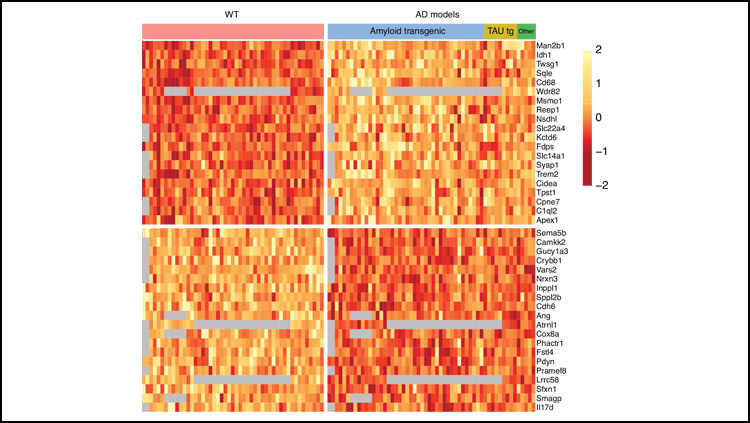Consistent Gene Changes in Alzheimer's Disease Across Studies
A comparison of mouse Alzheimer's disease models shows changes in the number of cells and the genes they express remain consistent throughout all stages of the disease. The new research published in eNeuro could reveal new targets for disease intervention and therapies.
Many studies have investigated how cells and genes change during Alzheimer's disease, but they haven't employed the same mouse models and statistical methods, making comparison and broader conclusions difficult. Zhuang et al. reanalyzed data from 10 previous studies in four types of mouse models of Alzheimer's disease. The research team sorted the samples into early and late Alzheimer's pathology and examined how cell types and gene expression changed.
The team identified consistent changes in early and late phase samples across the different mouse models. The early samples showed subtle but consistent changes in gene expression, including increased expression of genes involved in the body's immune response and cholesterol production.
The analysis provides additional support for the involvement of the immune system in early stages of Alzheimer's disease and increases understanding of early progression of the disease. The genes that are over-expressed in early stages could be potential targets for treatment and prevention of Alzheimer's disease.
Read the manuscript in eNeuro: Mega-Analysis of Gene Expression in Mouse Models of Alzheimer's Disease


















